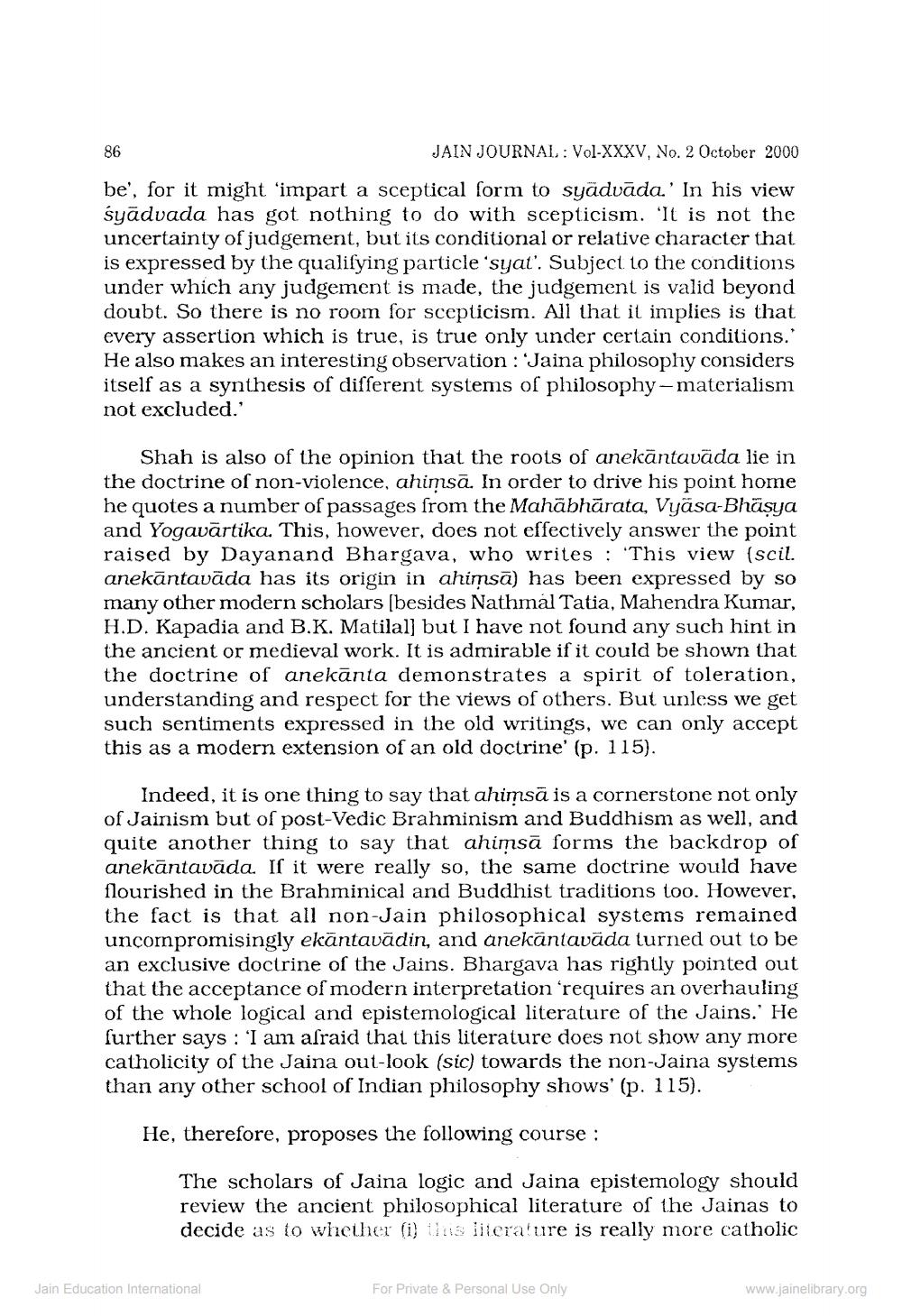________________
86
JAIN JOURNAL : Vol-XXXV, No. 2 October 2000
be', for it might 'impart a sceptical form to syadvada.' In his view syadvada has got nothing to do with scepticism. It is not the uncertainty of judgement, but its conditional or relative character that is expressed by the qualifying particle 'syat'. Subject to the conditions under which any judgement is made, the judgement is valid beyond doubt. So there is no room for scepticism. All that it implies is that every assertion which is true, is true only under certain conditions. He also makes an interesting observation : Jaina philosophy considers itself as a synthesis of different systems of philosophy-materialism not excluded.'
Shah is also of the opinion that the roots of anekāntavāda lie in the doctrine of non-violence, ahimsa. In order to drive his point home he quotes a number of passages from the Mahābhārata, Vyäsa-Bhāsya and Yogavārtika. This, however, does not effectively answer the point raised by Dayanand Bhargava, who writes : 'This view (scil. anekāntavāda has its origin in ahimsā) has been expressed by so many other modern scholars (besides Nathmal Tatia, Mahendra Kumar, H.D. Kapadia and B.K. Matilal] but I have not found any such hint in the ancient or medieval work. It is admirable if it could be shown that the doctrine of anekānta demonstrates a spirit of toleration, understanding and respect for the views of others. But unless we get such sentiments expressed in the old writings, we can only accept this as a modern extension of an old doctrine' (p. 115).
Indeed, it is one thing to say that ahimsā is a cornerstone not only of Jainism but of post-Vedic Brahminism and Buddhism as well, and quite another thing to say that ahimsā forms the backdrop of anekāntavāda. If it were really so, the same doctrine would have flourished in the Brahminical and Buddhist traditions too. However, the fact is that all non-Jain philosophical systems remained uncornpromisingly ekantavādin, and anekantaväda turned out to be an exclusive doctrine of the Jains. Bhargava has rightly pointed out that the acceptance of modern interpretation requires an overhauling of the whole logical and epistemological literature of the Jains.' He further says: 'I am afraid that this literature does not show any more catholicity of the Jaina out-look (sic) towards the non-Jaina systems than any other school of Indian philosophy shows' (p. 115).
He, therefore, proposes the following course :
The scholars of Jaina logic and Jaina epistemology should review the ancient philosophical literature of the Jainas to decide as to whether (i) thus literature is really more catholic
Jain Education International
For Private & Personal Use Only
www.jainelibrary.org




